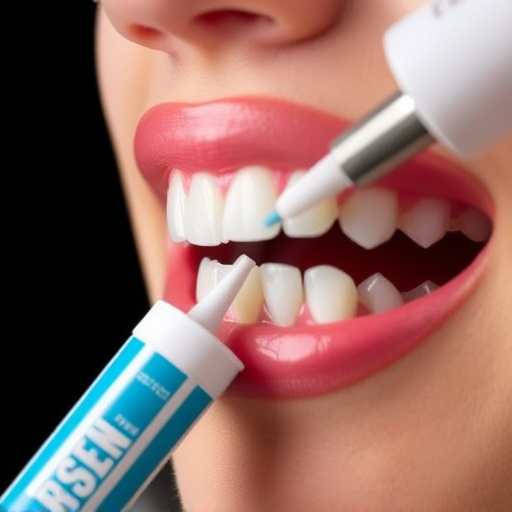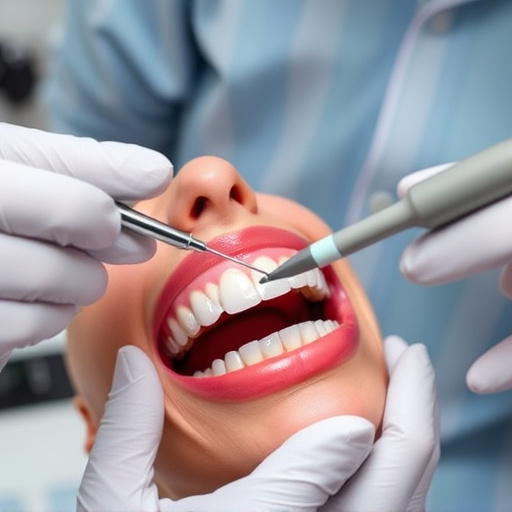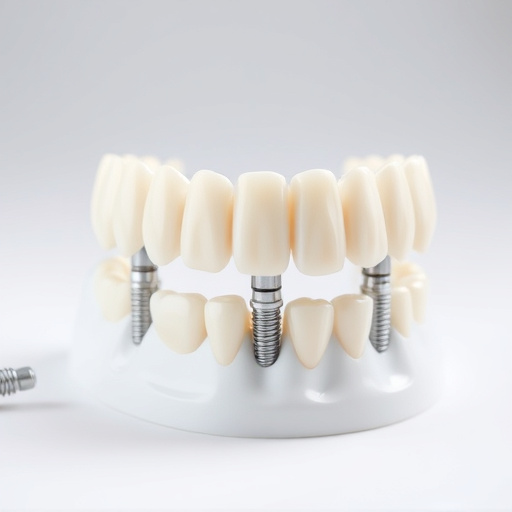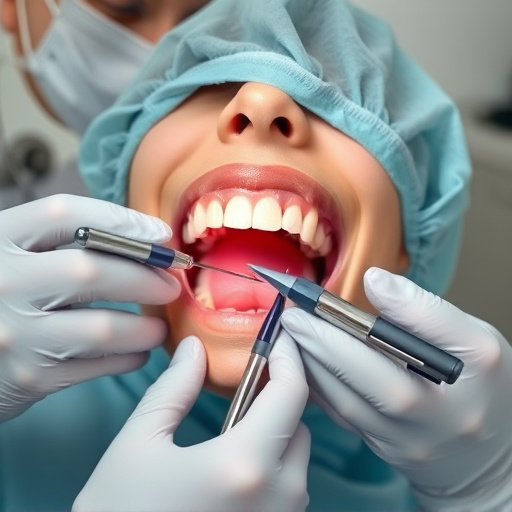Oral cancer screening is a vital component of preventive dentistry, enabling early detection through regular dental cleanings. Dentists use advanced technology and expertise to identify suspicious lesions or lumps, differentiating between benign and malignant growths. Early detection significantly improves treatment outcomes for oral cancer patients, as it allows for less invasive procedures in the early stages. Regular check-ups, including oral cancer screenings, are essential for maintaining optimal oral health, even for those without prior issues.
Oral cancer, a silent yet devastating threat, demands proactive measures. Early detection through regular oral cancer screening is pivotal in improving treatment outcomes. This article delves into the significance of understanding oral cancer’s subtle signs and its profound impact on patients’ lives. We explore how timely intervention, made possible by advanced screening techniques, can lead to more effective treatments and better prognoses. By highlighting the benefits of routine oral cancer screening, we aim to empower individuals and healthcare providers alike to take charge of this preventable disease.
- Understanding Oral Cancer and Its Impact
- The Role of Early Detection in Effective Treatment
- Benefits of Regular Oral Cancer Screening
Understanding Oral Cancer and Its Impact

Oral cancer is a significant health concern, affecting thousands worldwide. It’s crucial to understand that this cancer can develop in any part of the mouth or throat, often starting as seemingly minor lesions or sores. The impact is profound; if left undetected, it can lead to severe complications and even loss of life. Early detection plays a pivotal role in improving treatment outcomes.
Regular dental cleanings and check-ups are not just about maintaining good oral hygiene; they also serve as a vital tool for oral cancer screening. Dentists use specialized techniques during these visits to identify any unusual changes in the mouth, including red or white patches, lumps, or sore areas that may be indicative of cancerous growths. Timely intervention through procedures like dental fillings or more advanced treatments can significantly enhance survival rates and quality of life for patients.
The Role of Early Detection in Effective Treatment
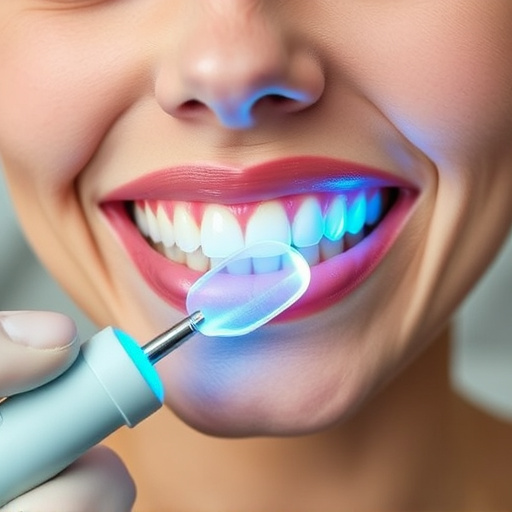
Early detection plays a pivotal role in the effective treatment of oral cancer. Regular oral cancer screenings are essential in identifying potential issues at their nascent stages. This proactive approach allows for prompt intervention, which significantly improves outcomes. When caught early, oral cancer is often more treatable, and treatments can be less invasive and intensive.
In the realm of family dentistry and general dentistry, oral cancer screening has become a standard procedure. Dentists use advanced technologies and their expertise to examine the mouth for any unusual growths or lesions. This simple step can make all the difference, as early detection enables dentists to differentiate between benign and malignant conditions, ultimately guiding patients towards the most suitable treatment options, such as surgical removal or targeted therapies, including dental fillings in specific cases.
Benefits of Regular Oral Cancer Screening
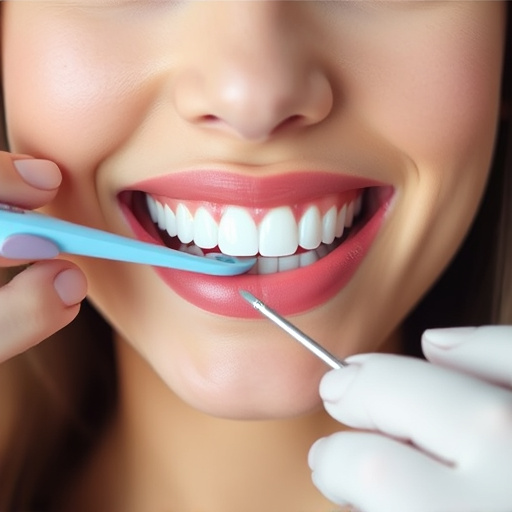
Regular oral cancer screenings play a pivotal role in early detection, which is key to successful treatment outcomes. This simple yet powerful tool allows dental professionals to identify any suspicious lesions or abnormalities within the mouth, including the tongue, gums, and throat. Early detection means that potential cancers can be treated before they advance, significantly improving survival rates. Moreover, these screenings can lead to less invasive treatments, as early-stage cancers often respond better to localized therapies.
Comparatively, neglecting oral cancer screening may result in more complex procedures, such as extensive surgeries or radiation therapy, for later-stage diagnoses. A family dentistry approach recommends routine check-ups that include oral cancer screenings, ensuring that any potential issues are addressed promptly. Even individuals without a history of oral concerns should consider these checks, as symptoms might be subtle or absent in the early stages. Additionally, with restorative dentistry techniques on hand, dental practices can offer effective solutions for any detected abnormalities, including wisdom tooth removal if necessary, thereby maintaining overall oral health and peace of mind.
Regular oral cancer screening is a powerful tool that can significantly improve treatment outcomes. By catching potential cancers early, healthcare professionals have a better chance of administering effective and less invasive treatments. This proactive approach not only saves lives but also ensures a higher quality of life for patients post-treatment. Oral cancer screening is a simple yet vital step towards managing this disease effectively, allowing for better patient outcomes and peace of mind.

